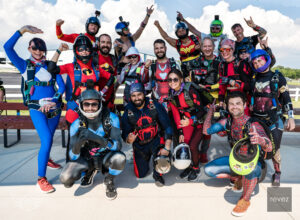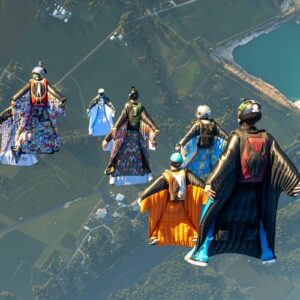Skydiving is an exhilarating experience that offers thrill-seekers the opportunity to soar through the skies and experience the ultimate adrenaline rush. However, safety is paramount in the world of skydiving, and there are specific health and age requirements in place to ensure the well-being of participants. In this article, we’ll explore the health and age considerations for skydiving in the USA, helping prospective jumpers understand what it takes to take to the skies safely.
Before embarking on a skydiving adventure, it’s essential to consider your overall health and physical fitness. While skydiving is a relatively safe activity when proper precautions are taken, there are certain medical conditions that may pose risks and warrant further evaluation. Some common health considerations include:

- Heart Conditions: Individuals with a history of heart disease, heart attacks, or irregular heart rhythms may be advised against skydiving due to the potential stress it places on the cardiovascular system.
- High Blood Pressure: Skydiving involves rapid changes in altitude, which can affect blood pressure levels. Individuals with uncontrolled hypertension may be at increased risk of complications and should consult with their healthcare provider before jumping.
- Respiratory Conditions: Lung diseases such as asthma or chronic obstructive pulmonary disease (COPD) may be exacerbated by the decreased oxygen levels at higher altitudes. Individuals with respiratory conditions should seek medical clearance before skydiving.
- Neurological Disorders: Conditions such as epilepsy or seizures may pose a safety risk during skydiving due to the potential for loss of consciousness. Individuals with neurological disorders should consult with their healthcare provider to assess their suitability for jumping.
- Pregnancy: Pregnant women are generally advised against skydiving due to the potential risks to both the mother and the fetus. The sudden changes in altitude and acceleration forces (such as the parachute opening) could pose a danger to the pregnancy.
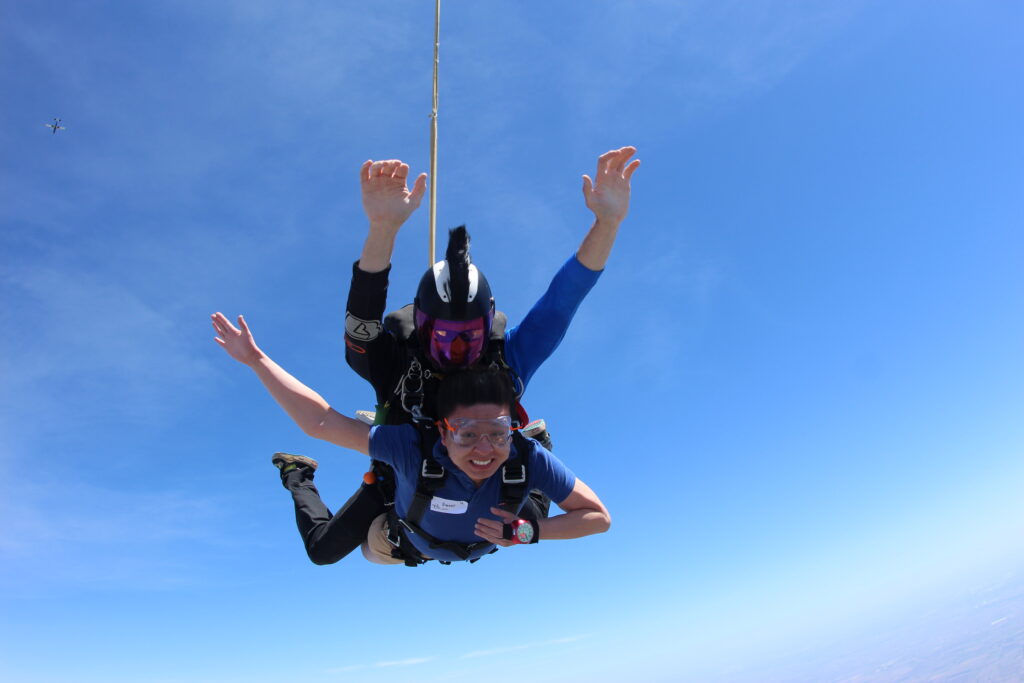
It’s important to note that these are just a few examples, and individuals with any underlying medical conditions should consult with their healthcare provider before skydiving to assess their suitability and receive personalized recommendations.
In addition to health considerations, age is also a crucial factor in determining eligibility for skydiving. While there is no upper age limit for skydiving (although mobility may be a determining factor), most skydiving centers in the US, and here at Skydive Chicago, require participants to be at least 18 years old to skydive.
Skydiving involves jumping out of an aircraft and descending to the ground using a parachute. The equipment used in skydiving, including the parachute system and harness, is designed to safely support the weight of the jumper during the freefall and landing phases of the jump. However, there are limits to the amount of weight that can be safely accommodated by this equipment.
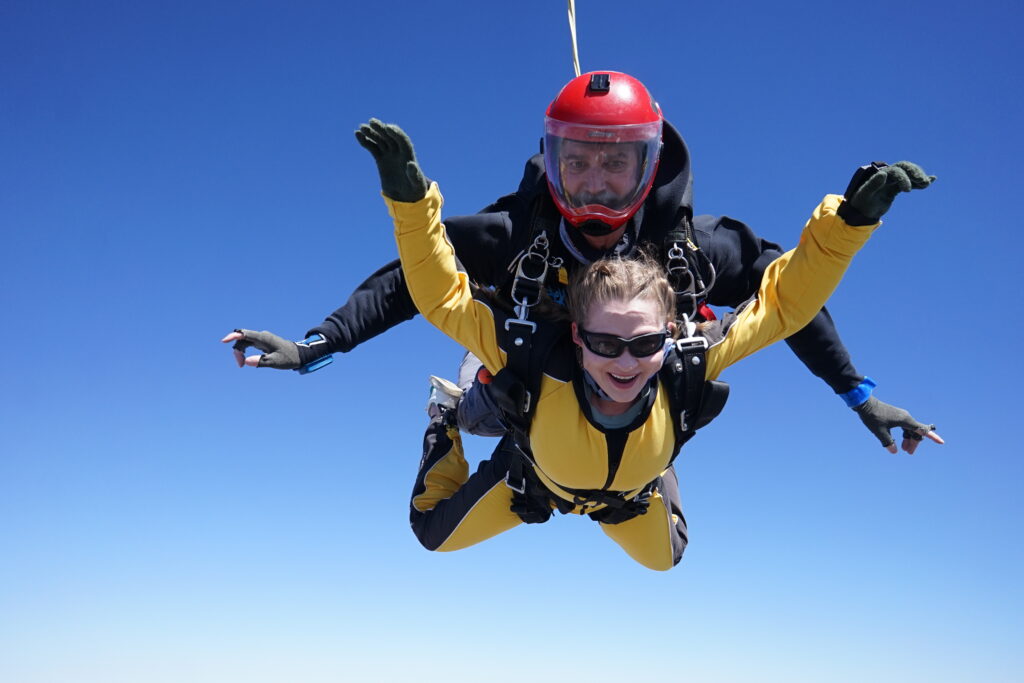
Typical Weight Limits:
While weight limits can vary depending on the skydiving center and the type of jump (tandem vs. solo), the typical weight limit for tandem skydiving – where the participant is attached to an experienced instructor – is around 220 to 230 pounds (100 to 104 kilograms). This weight limit is in place to ensure that the parachute system can safely support the combined weight of the participant and the instructor during the jump.
For solo or AFP (Advanced Freefall Program) jumps, where the participant jumps alone with their own parachute system, weight limits may be slightly higher, typically ranging from 225 to 250 pounds (102 to 113 kilograms). However, it’s essential to check with the specific skydiving center you plan to jump with, as weight limits can vary.
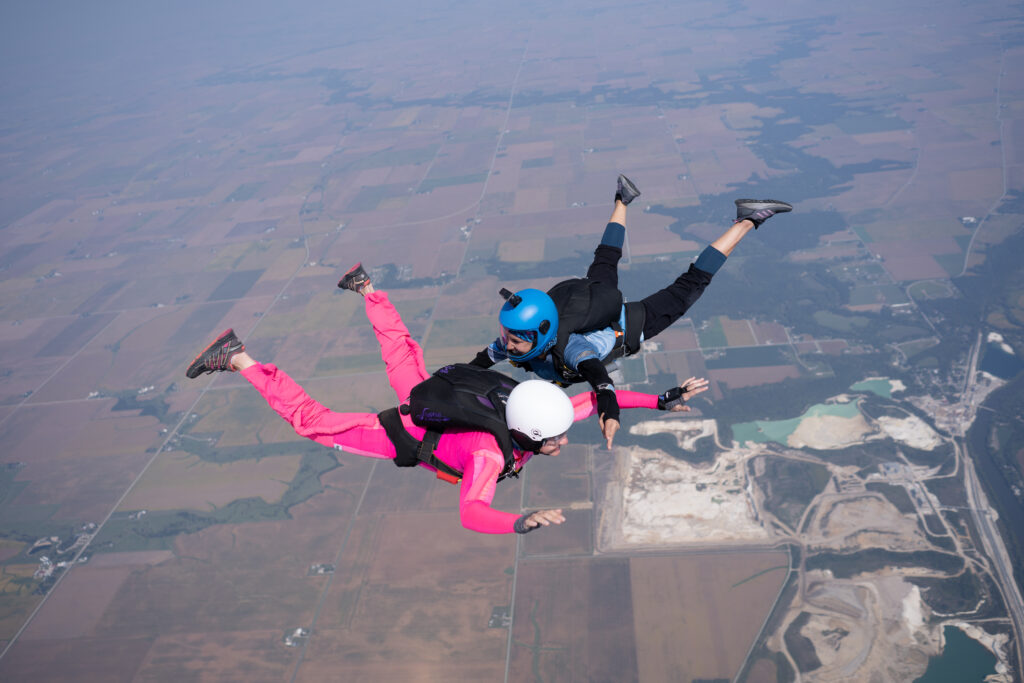
Skydiving is an exhilarating and unforgettable experience that offers participants the opportunity to conquer their fears and experience the thrill of flight. However, safety should always be the top priority, and it’s essential to consider both health and age requirements before taking to the skies. By being aware of these considerations and seeking proper medical guidance when necessary, individuals can enjoy the adventure of skydiving with peace of mind, knowing that they are taking the necessary precautions to soar safely.





